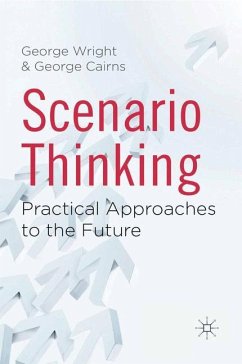
Models of Scenario Building and Planning
Facing Uncertainty and Complexity
Versandkostenfrei!
Versandfertig in 6-10 Tagen
91,99 €
inkl. MwSt.
Weitere Ausgaben:

PAYBACK Punkte
46 °P sammeln!
Models of Scenario Building and Planning offers a unique and innovative exploration of the scenario approach. The book focuses on the analysis of the competitors' behavior; the analysis of risk and uncertainty; and the link between scenarios and strategies.














